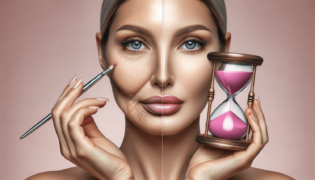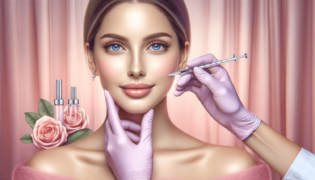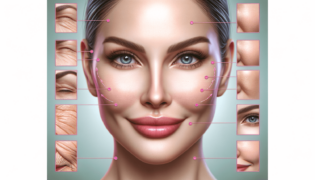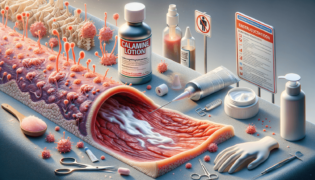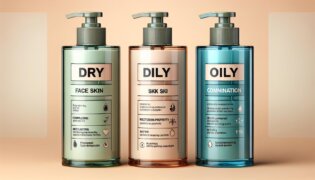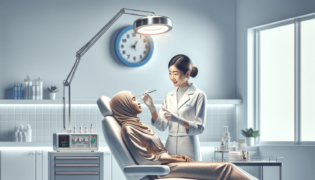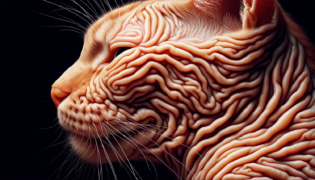Yes, Botox can cause headaches in some patients, typically arising within 24-48 hours after treatment and lasting for a short duration. The incidents are generally mild and subside on their own.
Skincare Logix Discusses Botox and Headaches
Botox, a popular non-surgical cosmetic treatment, is primarily used for reducing the appearance of fine lines and wrinkles. A blog about skincare, Skincare Logix, informs that although Botox is generally safe, it can lead to headaches in some cases.
Understanding Headache Occurrence After Botox
Headaches may occur as a side effect of the Botox treatment due to the temporary paralysis of targeted facial muscles. The cause of headaches remains unclear, though some experts theorize it could be related to nerve irritation or muscle tightness.
Preventing and Managing Headaches After Botox
To minimize the risk of headaches, Skincare Logix suggests staying well-hydrated, avoiding undue stress on the treated area, and seeking a qualified professional for the procedure. Over-the-counter pain relievers can help manage headaches, but always consult the administering professional before taking any medications.
Skin Tags and Botox
While Botox is not intended to treat skin tags, Skincare Logix addresses this common skin issue in a separate post. The blog provides details on various skin tags remover options and discusses the safety and efficacy of different removal methods.
Can Botox Cause Headaches: Exploring Possible Causes and Solutions
Botox, a sought-after treatment for reducing the signs of aging, can cause headaches for some individuals. At Skincare Logix, a blog about skincare, we delve into factors that may lead to these headaches, as well as potential ways to alleviate them.
Why Botox Might Cause Headaches
While experts have not entirely pinpointed the exact cause, some theories attribute Botox-related headaches to the injection process itself, as the needle can cause short-lived pain or irritation. Additionally, paralysis of the targeted muscles may strain surrounding muscles, leading to tension headaches.
Tips for Reducing Headache Risks After Botox
Skincare Logix advises a few precautionary measures to minimize headaches following Botox treatment:
- Hydration: Staying well-hydrated is essential for overall health and may help reduce the risk of headaches after Botox.
- Professional Selection: Choose a board-certified practitioner with extensive experience in Botox administration to ensure the procedure is carried out correctly, minimizing side effects.
- Aftercare: Follow the administering professional’s post-treatment guidelines, which may include avoiding strenuous activities, lying down, or rubbing the treated area for several hours after the procedure.
- Ice Packs: Applying ice packs to the treated area can help minimize swelling and discomfort, possibly reducing headache occurrence.
Skincare Logix’s Take on Headaches and Botox Recovery
As a leading skincare blog, Skincare Logix emphasizes that headaches following Botox treatments are generally mild and temporary. Recovery may be expedited by following the tips provided above. However, always consult with your practitioner if headaches are severe or persistent, as this may be an indication of an adverse reaction or potential complication.
FAQ Section: Botox and Headaches
In this section, Skincare Logix addresses some of the most frequently asked questions related to Botox and headaches to provide readers with essential information and peace of mind.
1. How long do Botox-related headaches typically last?
Botox-induced headaches are usually short-lived, lasting for a few hours to a couple of days. However, if headaches persist or are severe, consult the administering professional for further evaluation.
2. Are there any specific headache medications that are recommended after Botox?
Over-the-counter pain relievers, such as acetaminophen or ibuprofen, can potentially alleviate Botox-related headaches. Consult your practitioner before taking any medications to ensure they are appropriate and safe in your specific case.
3. Can individuals with a history of chronic headaches or migraines still undergo Botox treatments?
Yes, individuals with a history of headaches or migraines may still be candidates for Botox treatments. Interestingly, Botox has proven effective in treating chronic migraines in some cases. Consult with your practitioner to discuss your medical history and determine if Botox is suitable for you.
4. Are there any ways to prevent Botox-related headaches before the procedure?
Since the exact cause of Botox-induced headaches is not fully understood, prevention can be challenging. However, in addition to the tips provided in the blog post, try to relax and avoid stress, as tension may exacerbate headaches after treatment.
5. Are there any alternative treatments to Botox if headaches are a concern?
Yes, there are alternative treatments to Botox, such as dermal fillers or laser skin rejuvenation, that may pose a lower risk of headache occurrence. Consult your practitioner to discuss suitable alternatives based on your skincare needs and concerns.

